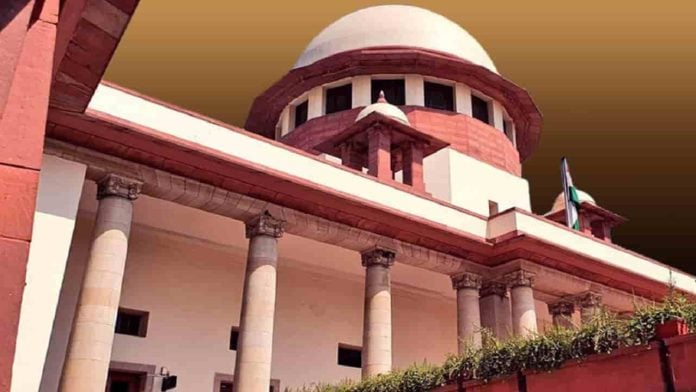The Gujarat government has filed an affidavit in the Supreme Court, stating that the provisions of Gujarat Freedom of Religion Act, 2003 were amended in 2021 to ensure that the process of renouncing one religion and adopting another was voluntary, genuine, and bona fide, besides being ‘free’ from any force, allurement or fraudulent means.
Earlier in September this year, the Division Bench of Justice M.R. Shah and Justice C.T. Ravikumar had issued notice to the Union of India and states on a petition filed by Bharatiya Janata Party leader Ashwini Upadhyay, seeking directions to both the Centre as well as states to take stringent steps against forcible and fraudulent religious conversions through intimidation, allurement, or otherwise.
The affidavit filed by the Gujarat government said the requirement of obtaining permission from the District Magistrate before a religious conversion was designed to shield people against forcible conversions and protect their freedom of conscience.
The state government said that in April last year, it had amended the Gujarat Freedom of Religion Act 2003, so as to include forcible religious conversions through marriage. The move was aimed at controlling and curbing the menace of ‘organised and sophisticated’ large-scale illegal conversions going on in the state, it added.
The Supreme Court had also expressed its concern over forced conversions on November 14, stating that if found to be correct and true, the serious issue had the potential to affect the security of the nation as well as the freedom of religion and conscience of the citizens.
The Apex Court had also directed the Centre to procure information from the states regarding the steps taken by them to prevent forceful religious conversions and collate all the information obtained.
The Gujarat government submitted that the right to freedom of religion did not include a fundamental right to convert other people to a particular religion and certainly not through fraud, deception, coercion, allurement or other such means.
Besides the affidavit, the State of Gujarat has also filed a separate SLP challenging the High Court order, which put on hold the operation of Section 5 of the Act, apart from seeking a stay on the High Court order so as to fully implement the provisions of the Act, particularly Section 5.
On August 19, 2021, the Division Bench of Chief Justice Vikram Nath and Justice Biren Vaishnav of the High Court had stayed Sections 3, 4, 4A to 4C, 5, 6 and 6A of the amended act, saying that these provisions violated the right to life.
The High Court had observed that the mere fact that a marriage was between people of different religions did not prove that it had been conducted for the purposes of unlawful conversion, since there was no proof of force, allurement or fraud being involved.
As per the Gujarat government, Section 5 of the Act mandated prior permission of the District Magistrate for religious conversion, through marriage or otherwise, was a ‘valid’ provision of law, which held the field for the last 18 years, the state government has claimed.
It said the objective of the enactment was to ‘maintain’ the public order within the state of Gujarat by protecting the cherished rights of vulnerable sections of the society, including women and economically and socially backward classes.
As per the state government, the meaning and purport of the word ‘propagate’ in Article 25 of the Constitution had been discussed and debated in great detail in the Constituent Assembly and its inclusion was passed only after the clarification that the fundamental right under Article 25 would not include the right to convert.
The affidavit further pointed out that the constitutionality of Madhya Pradesh Dharma Swatantraya Adhiniyam, 1968 and the Orissa Freedom of Religion Act, 1967 was challenged before a Constitution Bench, which held that fraudulent or induced conversion impinged upon the right to freedom of conscience of an individual apart from hampering public order.
Since the above-mentioned Acts were similar to Gujarat Freedom of Religion Act, the state was well within its power to regulate or restrict the same, it added.
(Case title: Ashwini Kumar Upadhyay vs Union of India)


